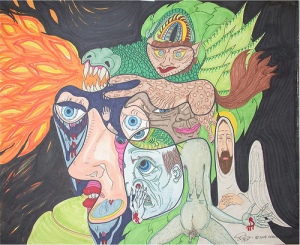May 24 is world schizophrenia day. There are some popular misconceptions about schizophrenia that keep recurring in media and films about schizophrenia. Interestingly, in most of our films, the disorder mostly have symptoms that would help the writer to manipulate the story.
I can imagine the argument against this- ‘writing is about finding dramatic possibilities. One should not get too serious about the factual aspect of it. This is not a documentary.’ But it is a lousy argument. If a writer is writing a court drama and to heighten a plot point, if he makes up some laws which are not in Indian penal code, will we accept it?
Basically inaccurate depiction of mental illness is the product of laziness of the writer. First, the reluctance to google the particular illness and spent some time reading about it. Second, the laziness to really work around the irrevocable facts about the illness while trying to create drama. Instead they go for the easy path of molding the illness according to the needs of the story.
Now this can be really damaging from a bigger perspective. Because stigma and lack of awareness have been big problems worldwide in creating barriers in mental health care. And films and media are important determinants of public perceptions about mental illness.
Below are some common misconceptions that keep recurring-
1) ‘Schizophrenia is a behaviour or a state of mind.’
Often you read about a person who is very ‘schizophrenic’ or ‘psychotic.’ What this means is different for different writers. Some times they are referring to weird or aloof behaviour. But using name of a medical illness to denote a behaviour is in itself weird. If some one talks very sweetly, would you call him ‘diabetic?’ Continue reading
